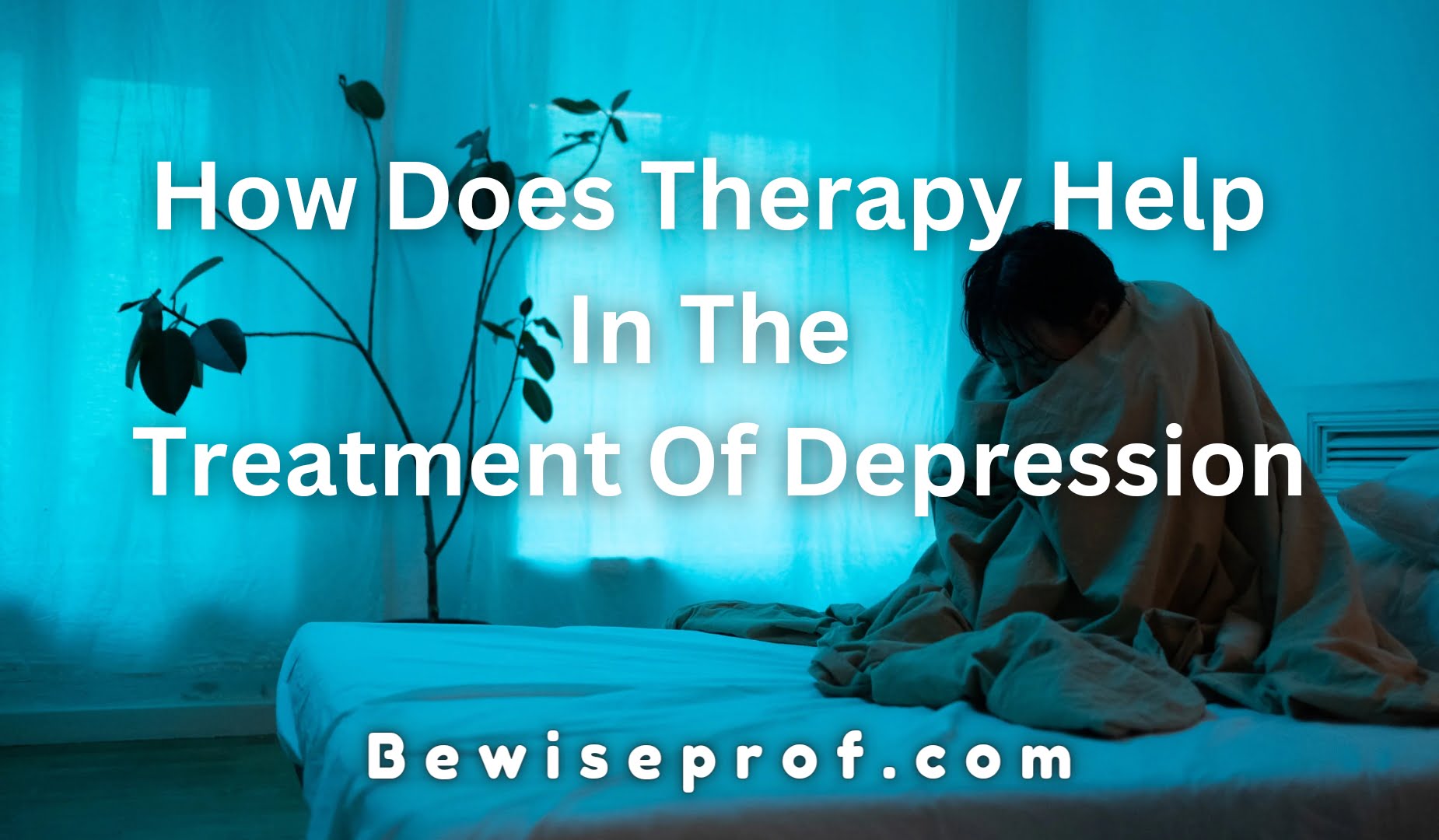Living with depression or mental illness can be a challenging experience. It can manifest in many forms, such as sadness and fatigue, but it also affects your ability to enjoy life and make lasting changes.
The best psychiatrist in Los Angeles provides psychotherapy, online therapy, which is a type of talk therapy that uses techniques to help you identify and address the root causes of your depression.
While antidepressants are often necessary for managing the symptoms of depression, therapy is a vital part of treating the condition effectively. Through emotional guidance and practical advice, therapies like cognitive behavioral therapy (CBT) seek to change how people think and act around their depression symptoms while creating healthier relationships between them and those around them.
In this blog post, we’ll explore how therapy helps treat depression so you can decide if this form of depression treatment just might be suitable for you or someone you care about.

Defining Depression
Millions worldwide suffer from depression, a mental disorder that can be debilitating. Severe depression manifests in various ways. Some common symptoms include overwhelming feelings of sadness and loneliness. It may lead to hopelessness and changes in appetite, and sleep patterns. It’s essential to acknowledge that depression goes beyond having a bad day or feeling down. Taking the first step towards managing a problem involves seeking professional assistance. It’s a severe medical condition that can impact a person’s daily life and relationships. If you think you or your family members may be experiencing depression, seeking help from a healthcare professional is essential.
They can offer personalized treatment options that may include therapy, medication, group therapy, or a combination.
Remember, there is no shame in a mental health professional seeking help; with the proper treatment, it’s possible to manage and overcome depression.
How Therapy Helps in Treating Depression
Therapy is an effective way to address the underlying causes of depression. Through therapy, you can learn more about yourself and your condition and develop strategies for managing symptoms.
Therapy can effectively combat depression, as demonstrated by these examples:
- Therapy can help to identify the root causes of depression and develop coping mechanisms to deal with the condition.
- Therapy can also provide support and guidance during difficult times.
- Several different types of therapy can be effective in treating depression, including cognitive-behavioral therapy, interpersonal therapy, and psychodynamic therapy.
- Therapists can teach people to manage their symptoms & prevent future depression episodes. Investing in therapy can make a significant difference in your mental well-being.
- If you are considering therapy for depression, it is important to find a therapist who you feel comfortable with and who has experience treating depression.
- Depression is a serious condition that can be effectively treated with therapy.
Exploring the Benefits of Therapy in Treating Depression
Therapy can benefit those with depression in several ways:
- It can help to identify and address underlying issues that may be causing or contributing to depressive symptoms.
- It lets you gain insight into your thoughts, feelings, and behaviors.
- It can provide support and guidance during difficult times.
- It can help you develop positive coping strategies.
- It can help you build healthy relationships and communication skills.
- It can help you learn how to manage symptoms and prevent future episodes of depression.
- Identifying and addressing underlying causes of depression
- Developing coping mechanisms for managing symptoms
- Providing support and guidance during difficult times
- Utilizing different types of therapy, such as cognitive-behavioral therapy, interpersonal therapy, and psychodynamic therapy
- Teaching patients how to manage their symptoms and prevent future episodes of depression
- Creating a comfortable environment with an experienced therapist
- Finding healthy ways to cope with stress and anxiety
- Learning better communication skills in relationships
- Increasing self-esteem and building confidence
- Recognizing unhealthy behaviors or thoughts
Understanding How Cognitive-Behavioral Therapy Can Help with Depression
Cognitive-behavioral therapy (CBT) is a type of talk therapy that can help with depression. This therapy focuses on identifying and changing negative thought patterns and behaviors contributing to the condition.
Cognitive Behavioral Therapy (CBT) is grounded on the notion that our emotions, thoughts, and actions are intertwined. In other words, what we feel and think can influence how we act, and vice versa. Through CBT, patients can learn new ways of thinking and responding to situations that can help them better manage their depression.
CBT treats various mental health conditions, including depression, anxiety, and post-traumatic stress disorder (PTSD). It is also used to help with mental health treatment and substance abuse issues.
CBT helps patients to recognize and challenge maladaptive thinking patterns, such as self-blame moderate depression or worry. It also teaches mindfulness techniques that can help with managing difficult emotions.
By teaching new ways of responding to situations, CBT can help people learn how to manage their depression more effectively.

Identifying Other Forms of Therapy That Can Help Treat Depression
In addition to cognitive-behavioral therapy, other forms of talk therapy can also be effective in treating depression.
Interpersonal therapy (IPT) is a talk therapy developed specifically for the treatment of depression. It is a relationship-focused therapy that examines how both present and past relationships may contribute to depressive symptoms. By identifying such links, patients can develop a deeper understanding of their emotional struggles and develop the skills necessary to maintain healthy interpersonal connections – a crucial part of mental health. This type of therapy helps patients to identify and address underlying causes of depression, such as unresolved conflicts or loss.
Psychodynamic therapy is another form of talk therapy that can be used to treat depression. This cognitive therapy focuses on understanding unconscious thoughts and motivations contributing to depressive symptoms.
By utilizing different therapies, patients can learn better ways to manage their symptoms and get the help they need to recover from depression.
It can provide a safe and comfortable environment for exploring difficult emotions and identifying potential triggers for depression. It can also help people develop positive coping skills and create meaningful relationships with others.
While therapy can be extremely effective for depression, one must seek treatment from an experienced therapist in a supportive setting. With the right support, people can learn how to manage their depression and take steps toward recovery.
Conclusion
Depression can be a difficult and overwhelming condition to cope with, but it is possible to manage symptoms and prevent future episodes with the right support. Different types of therapy can help patients learn how to better manage their major depressive disorder, such as cognitive-behavioral therapy, interpersonal therapy, antidepressant medication, and psychodynamic therapy.
These therapies can help people identify and address underlying causes of depression, learn new coping strategies for depression, and build meaningful relationships with others.
With the right help, people can take steps toward recovery and lead a healthier life.
